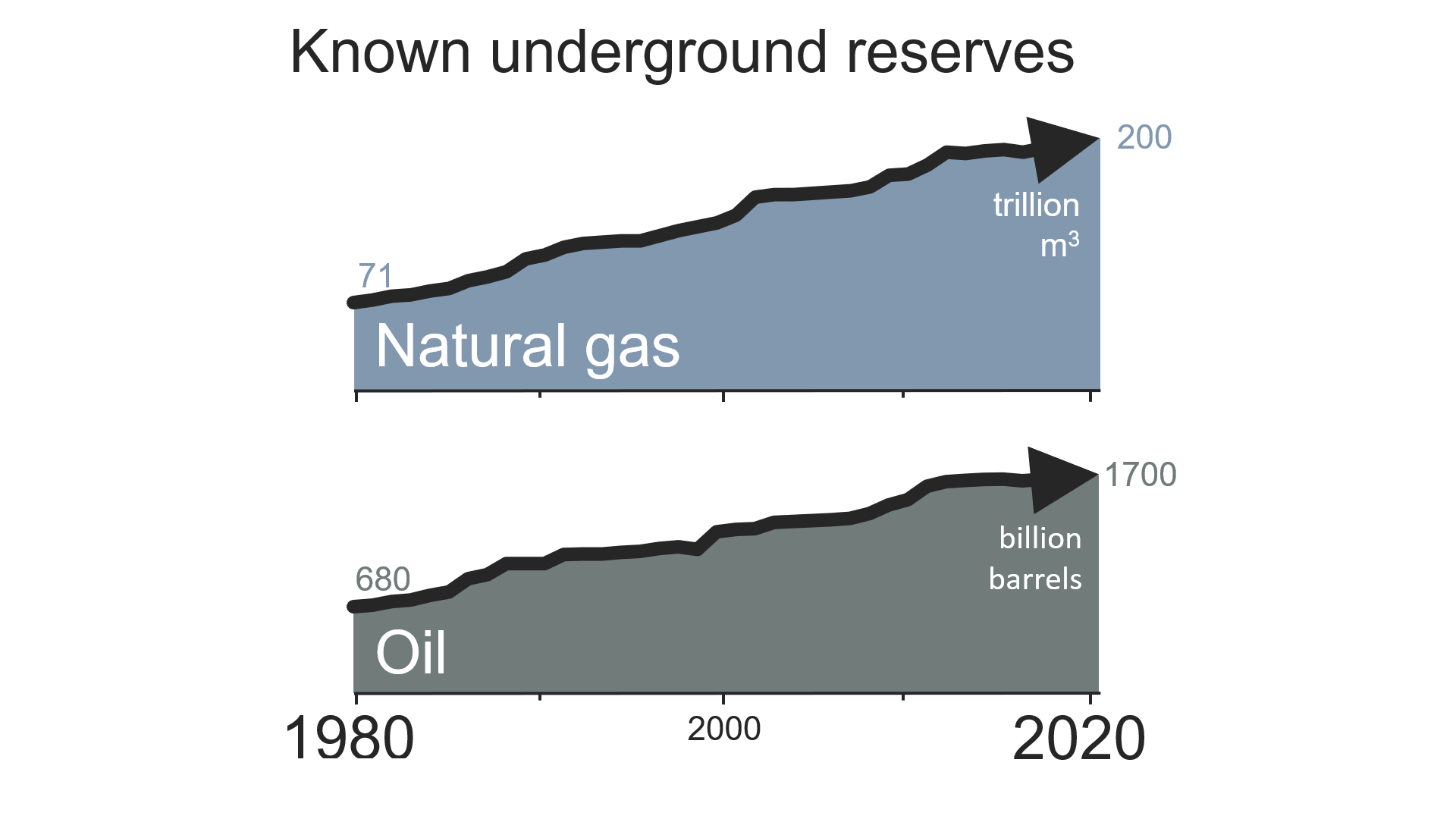
Most people don’t know this:
Test your friends by sharing this link
Most people wrongly think that the known fossil fuel reserves stayed the same or even decreased, over the last 40 years!
This video explains why that’s wrong:
Fossil fuel reserves doubled in the last 40 years!
More and more oil and natural gas reserves have been discovered. This means they are not running out like most people think. We need to switch to cleaner energy now, we can’t just wait for the dirty stuff to run out. Read more here.
(Follow us for more climate lessons coming soon: Facebook — Twitter — Instagram — LinkedIn — TikTok)
About this misconception
You may have thought we will need to switch to renewable energy sources when fossil fuel reserves run low. History has shown us, though, that as technology has improved, more oil and gas reserves have been found and pumped out of the ground.
To prevent the absolute worst effects of climate change, oil and gas reserves must stay in the ground. They will never run out, just become more expensive to extract, and if we continue to burn them as we have been, scientists predict catastrophic climate change.
As oil and gas becomes harder to get to and renewable sources become more commonly used, it will make more financial sense to leave fossil fuels in the ground to switch to cleaner, renewable sources instead. We just need to do it more quickly!
Why is it a problem that people are wrong about this?
Thinking we will simply switch to renewable energy sources when fossil fuels run low is hugely naive. To avoid the worst impacts of climate change, fossil fuel reserves need to be left in the ground.
Why are people wrong about this?
They think that as we use more oil and gas, the reserves will run lower. They hadn’t realized that as technology improves, it becomes more possible to find and extract fossil fuels.
About this fact
The data we used comes from the BP Statistical Review of World Energy and it shows that known oil reserves in 2020 were 254% bigger than in 1980 and that natural gas reserves were 265% bigger in the same period.
The term “known reserves” we use in this question is called “proved reserves” in the BP data. Proved (or known) reserves are “those quantities that geological and engineering information indicates with reasonable certainty can be recovered in the future from known reservoirs under existing economic and geological conditions.” There are more resources that are known about but, with the current technology, don’t meet the criteria of “proved reserves” that can actually be used.
The data isn’t perfect as companies and governments may not always want to release all the details of their known reserves. However, three independent experts we consulted about this question said they recognized BP’s data as the best available and that the doubling of known reserves during the past 40 years is correct.
Download slides
Want to use the slides from the video in your teaching? You can download them here and use freely.
Behind the scenes…
Want to try more questions? Go to our Worldview Upgrader.

